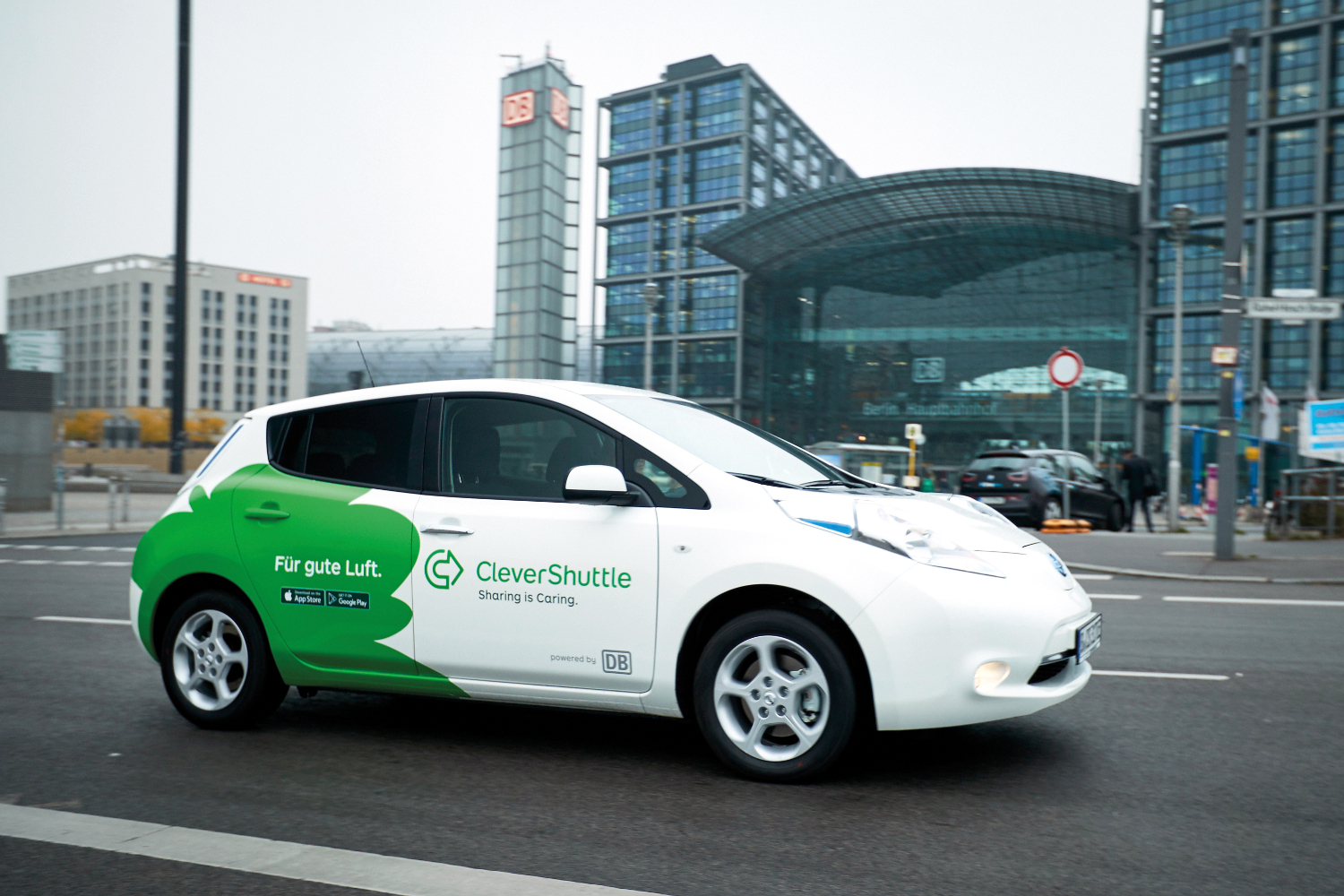In Germany we find a whole series of new ride pooling service providers. And that is urgently needed. According to UN estimates, around 75 percent of the population will live in the world’s major cities by 2050. And since a large proportion of productivity is generated in these conurbations, the challenges of urban mobility must be met. The outdated and overstrained infrastructure in many cities, deteriorating air quality and the threat of congestion and productivity inefficiencies are scenarios for which mobility providers must find solutions.
One of the new mobility offers is ridepooling. Ridepooling is the bringing together of people with the same or similar destinations, organised with the help of smartphone apps and controlled by highly intelligent software. Algorithms are used to collect additional passengers on the selected route and transport them together. This optimizes vehicle utilization and avoids detours and empty runs. The so-called “On-Demand Shuttle Operating System” can thus enable cities to get traffic problems under control without having to invest in their own infrastructure.
A ride pooling concept includes the formation of car pools with the aim of reducing costs for individual passengers and relieving traffic congestion in urban centres. On average, there are currently 1.4 passengers in a car on all journeys in Germany. Especially during the rush hours in the morning and evening, most vehicles have only one passenger on board. According to the ridepooling providers, this is now to an end.
Ridepooling Services dank intelligenter App
But what at first sounds like a logical business idea with great potential is in reality facing strong headwinds. The German taxi and rental car association is particularly bitterly fighting against new mobile business models. At the same time, it benefits from a Stone Age legislation that stands in the way of any mobility innovation. These are outdated rules in Germany, such as the obligation for rental cars to return to their original depot, which today are more a defensive measure against unpopular competitors than an actual practical regulation.
Hope now comes from the new government in Germany, of all governments, whose coalition agreement seeks to”modernise passenger transport law and adapt the framework conditions for public transport and new forms of operation in the area of shared use (ride pooling) to people’s changing mobility needs and new technical developments”. This is basically good news for the various providers who are taking to the streets in German cities with their innovations.
Clevershuttle, MOIA and ViaVan started already
Most providers in Germany have started their ride pooling services within the last 2-3 years. The leading providers are Allygator Shuttle, door2door, mytaxi Germany, ioki from Deutsche Bahn, MOIA, Clevershuttle and ViaVan.
The Volkswagen subsidiary MOIA, for example, plans to “redefine the mobility of people in urban spaces”. So the CEO Ole Harms last autumn. The focus here is less on pure car sharing but on the development of own IT-based on-demand offers. The’Moians’ are building ridehailing or ride pooling services and have already invested in digital startups to integrate their know-how into their solution. The ridesharing provider works closely with city leaders and established transport providers during the rollout of ridesharing.
But in the end it has become a little quieter around MOIA. Although the test operation in Hanover has been expanded from 20 to 35 vehicles, there has been no success waiting for the deployment of 200 MOIA shuttle buses from the beginning of 2018 as announced at the end of last year. The start date is now planned for January 2019, in order to then “with increasing acceptance” expand the ridepooling fleet to 1000 vehicles in Hamburg.
One step further is the Daimler subsidiary ViaVan, which attracted attention with the launch of its ride pooling service in Amsterdam at the beginning of March. Not in London or Berlin as initially announced, no in the Dutch canal city, the sustainable, alternative mobility service starts.
ViaVan is a joint venture of Mercedes-Benz Vans and Via, the American experts in ride sharing. Last year, both companies invested 50 million US dollars each in ViaVan to gradually roll out the service in Europe. London and Berlin are to follow in a few weeks, but both cities are waiting for the final permits. They are already very successful in New York, Chicago and other major American cities. In the Big Apple, 1.2 million journeys with via vehicles are already carried out each month.
“In the Big Apple, 1.2 million journeys with via vehicles are already carried out each month.”
Third big player in Germany is the Berlin startup Clevershuttle. The founders Bruno, Jan and Slava have been best friends since their school days and founded CleverShuttle in 2014, their team has grown to 55 employees. With the help of its own Mobility as a Service platform, customers can easily add on-demand ride sharing to their existing transport system – making fleet operation more economical, environmentally friendly and more demand-driven. Under the name CleverShuttle, the service with official approval has been operating as on-demand ride sharing on German roads since the beginning of 2016. Since then, more than 450,000 transports and over 1,500,000 kilometres have been carried out.
Starting comparatively early today, the approvals for a ride pooling start have to be obtained individually in every city in Germany. In the meantime, the startup, in which Deutsche Bahn and Daimler are involved, is on the road with electric cars in Berlin, Hamburg, Leipzig, Munich and Stuttgart. In some cities, Clevershuttle operates on the basis of an experimental clause, i.e. a test run of up to four years. What happens afterwards also depends on the arbitrariness of politics.
How such a thing can turn out, the American challenger UBER had to painfully experience in the last months in various European cities. His UberPool Ridesharing service from the USA is only allowed in a few cities outside the USA, even if the software itself is probably already the most developed due to years of investment.
Post a Comment
You must be logged in to post a comment.






















